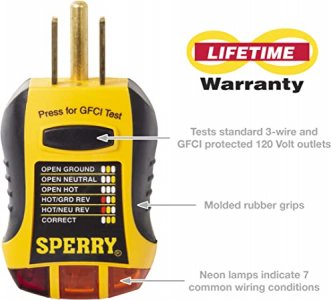JaniceM
Well-known Member
- Location
- still lost between two shores..
Hopefully there's someone here who's familiar with this so I don't need to go into a lot of detail.
A previous landlord had a device similar to this picture. He used it a few times to make sure outlets were safe and in good working condition.
I've never heard of outlets referred to as 'receptacles,' but an individual said this:
receptacles need to be GFCI protected and it is required that the inspector test those receptacles to verify they are in proper working order.
Considering a landlord used a device like this to make sure the outlets were ok, is there a reason anyone would need to use an entirely different method? (will provide details if necessary).

A previous landlord had a device similar to this picture. He used it a few times to make sure outlets were safe and in good working condition.
I've never heard of outlets referred to as 'receptacles,' but an individual said this:
receptacles need to be GFCI protected and it is required that the inspector test those receptacles to verify they are in proper working order.
Considering a landlord used a device like this to make sure the outlets were ok, is there a reason anyone would need to use an entirely different method? (will provide details if necessary).


